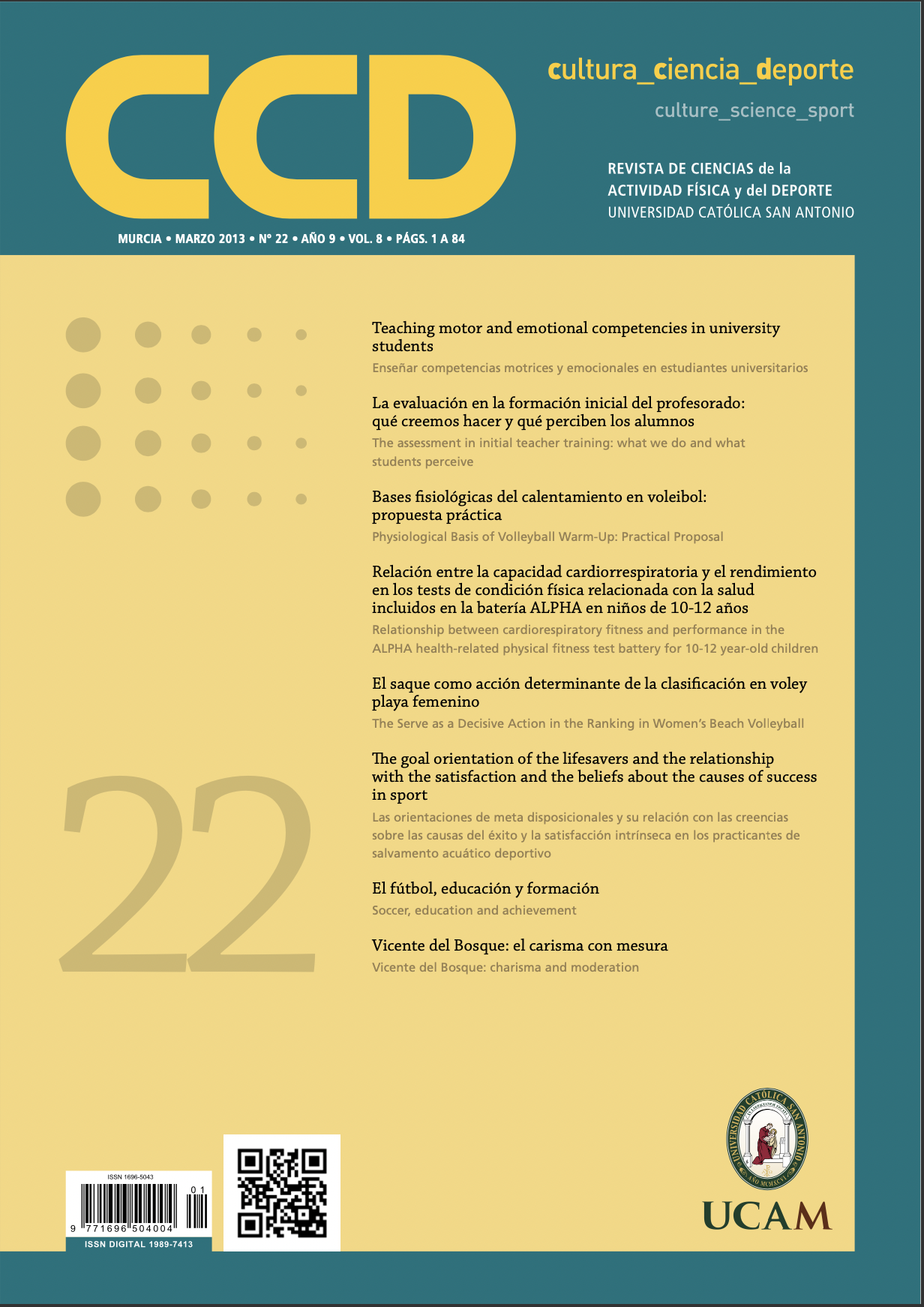Teaching motor and emotional competencies in university students. (Enseñar competencias motrices y emocionales en estudiantes universitarios).
DOI:
https://doi.org/10.12800/ccd.v8i22.219Abstract
http://dx.doi.org/10.12800/ccd.v8i22.219
El objetivo de este estudio fue examinar la relación entre las competencias motrices y emocionales en estudiantes de educación física producidas por diferentes juegos deportivos clasificados en cuatro dominios de acción motriz (psicomotor, cooperación, oposición y cooperación/oposición). La muestra estuvo constituida por 357 estudiantes (155 chicas y 202 chicos) de tres universidades: Barcelona y Lleida en España, y Coimbra en Portugal. A través de un estudio cuasi-experimental los estudiantes indicaban en un cuestionario, una vez realizado cada juego, la intensidad que sintieron en trece emociones positivas,negativas y ambiguas. Las 37.128 observaciones registradas se analizaron usando un modelo basado en ecuaciones de estimación generalizadas (GEE), familia Gaussian, enlace identidad y correlación intercambiable. Las emociones variaron notablemente entre las competencias sociomotrices (dominios cooperación, oposición y cooperación/oposición) y los juegos psicomotores. Esta investigación confirma el papel relevante de los juegos cuando se trata de enseñar competencias motrices y emocionales en estudiantes universitarios.
Palabras clave: Educación, dominios acción motriz, emociones, praxiología motriz, competencias, juegos.
===
Abstract
The aim of this study was to examine the relationship between motor and emotional competencies in physical education students produced by different sporting games classified into four domains of motor action (psychomotor, co-operation, opposition, and co-operation/ opposition). The sample was composed of 357 students (155 female and 202 male) from three universities: Barcelona and Lleida in Spain, and Coimbra in Portugal. Through a quasi-experimental study, the students indicated the intensity felt for thirteen positive, negative, and ambiguous emotions on a questionnaire after playing games. The 37,128 observations were analysed using a model based on generalised estimating equations (GEE), Gaussian family, identity link, and exchangeable correlation. The emotions varied notably between the sociomotor competencies (cooperation, opposition and cooperation/ opposition) and the psychomotor ones. This research confirmed the key role that games can play when it comes to teaching motor and emotional competencies to university students.
Key words: Education, motor action domains, emotions, motor praxeology, competencies, games.
Downloads
How to Cite
Issue
Section
License
The authors who publish in this journal agree with the following terms:
- The authors retain the copyright and guarantee the journal the right to be the first publication of the work as well as licensed under a Creative Commons Attribution License that allows others to share the work with recognition of the authorship of the work and the initial publication in this journal.













